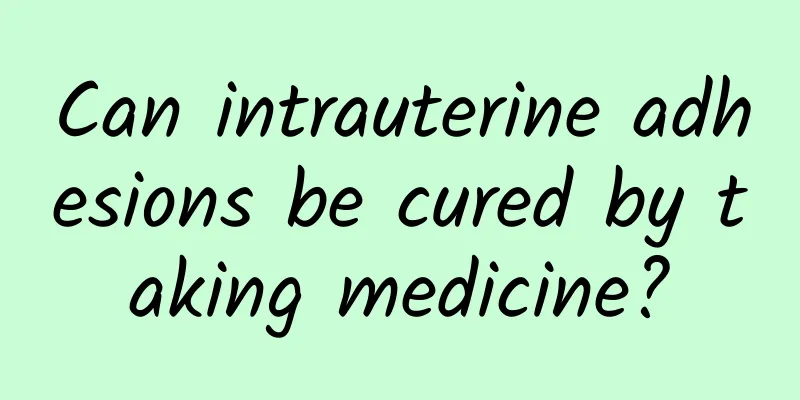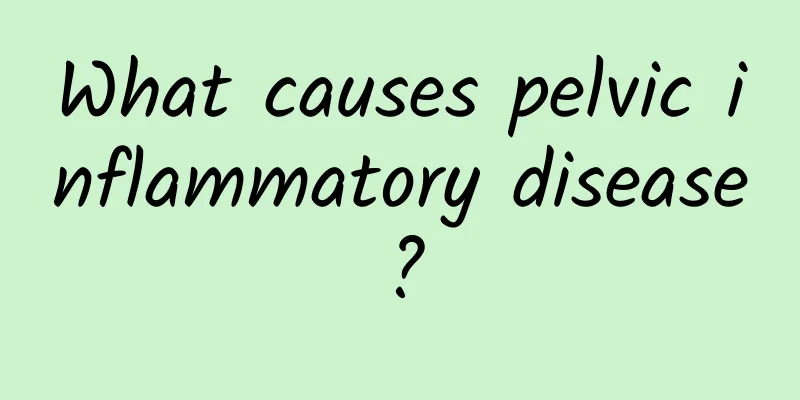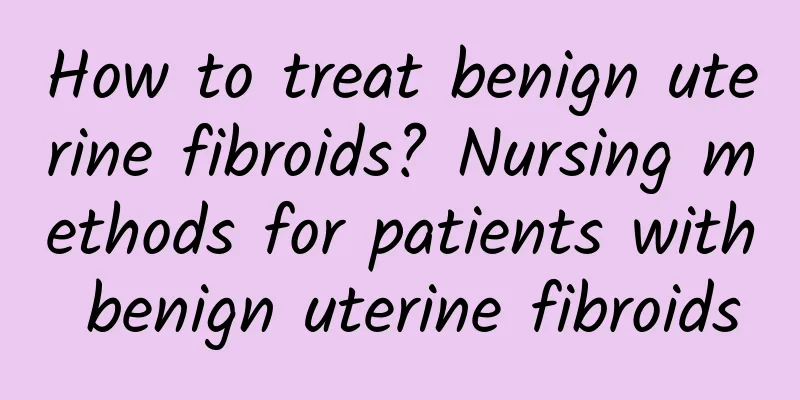Can intrauterine adhesions be cured by taking medicine?

|
Intrauterine adhesions cannot be cured by medication alone and usually require hysteroscopic separation surgery. After surgery, drug therapy is an important auxiliary link. 1. Causes and symptoms of intrauterine adhesions Intrauterine adhesions are caused by damage to the basal layer of the endometrium, leading to adhesions of the uterine wall. Common causes include infection after intrauterine surgery or poor wound healing. Symptoms may include decreased menstrual flow, irregular menstruation or even amenorrhea, as well as infertility. Early detection and treatment are critical. 2. The importance of surgical treatment Drug therapy alone has limited effect on intrauterine adhesions because drugs cannot physically separate the already adhered uterine wall. Hysteroscopic separation surgery can directly release adhesions and provide conditions for subsequent endometrial repair. After surgery, doctors usually recommend drug therapy to support recovery. 3. The role of postoperative drug therapy After surgery, medication can help improve blood circulation in the endometrium and promote its repair. Commonly used medications include Progynova, progesterone, and aspirin. Traditional Chinese medicine is also often used to promote blood circulation and remove blood stasis, reducing the risk of postoperative recurrence. 4. Measures to prevent recurrence In order to prevent the uterine cavity from re-adhesion, an IUD may be placed after surgery. This physical isolation method can effectively reduce the chance of adhesion. At the same time, it is also very important to maintain good living habits and eating habits. 5. Precautions for daily life after surgery During the recovery period after surgery, avoid eating raw, cold and spicy foods to avoid irritating the uterus. Maintain private hygiene and avoid premature sexual intercourse to prevent infection and adhesion recurrence. Follow the doctor's advice and have regular checkups to ensure good recovery. 6. Psychological and emotional support The treatment process for intrauterine adhesions can be psychologically and emotionally demanding. Support from family and friends, and counseling when necessary, can help you cope better with this process. The treatment of intrauterine adhesions requires the dual effects of surgery and medication. Early detection and active treatment can increase the chance of recovery, while good postoperative care and preventive measures can effectively reduce the risk of recurrence. Through scientific treatment and a reasonable lifestyle, patients can better recover their health. |
<<: What causes pelvic effusion?
>>: Will ovarian cysts disappear on their own after menopause? How to treat them?
Recommend
What harm will pelvic effusion cause? How to deal with the harm of pelvic effusion?
Pelvic effusion is extremely harmful to women'...
Can I get pregnant if I have congenital uterine cold and dysmenorrhea?
Whether or not women with congenital uterine cold...
Can pelvic peritonitis be cured?
Nowadays, people are under great pressure in life...
Summer sports mode on! These exercises make you lose weight the more you play
Taiwan has everything except the largest number o...
I would like to ask the experts how to deal with cervical erosion and bleeding?
How to deal with cervical erosion bleeding is wha...
What are the types of abortion?
As we all know, the experience of miscarriage can...
Experts' simple analysis of vulvar leukoplakia
Vulvar leukoplakia is a gynecological disease tha...
TCM treatment of acute pelvic inflammatory disease should be divided into stages
Traditional Chinese medicine divides acute pelvic...
What should I do if I want to eat snacks while losing weight? 4 smart choices to avoid getting fat
Q: I really want to eat snacks! What should I do?...
Morphological and structural characteristics of uterine fibroids
Uterine fibroids are the most common benign tumor...
Let's take a look at the symptoms of white lesions of the vulva.
White lesions of the vulva, also known as leukopl...
Introduction to many common symptoms of pelvic inflammatory disease
For pelvic inflammatory disease, which has a very...
Which is less harmful to women, medical abortion or surgical abortion? There are three fundamental differences between medical abortion and surgical abortion.
Whether it is surgical abortion or medical aborti...
Expert introduction: The reason why unmarried women develop adnexitis
Regarding the cause of adnexitis, it is generally...
How to maintain ovaries during menopause? Listen to the doctor's guidance
In general, it is necessary to strengthen overall...









